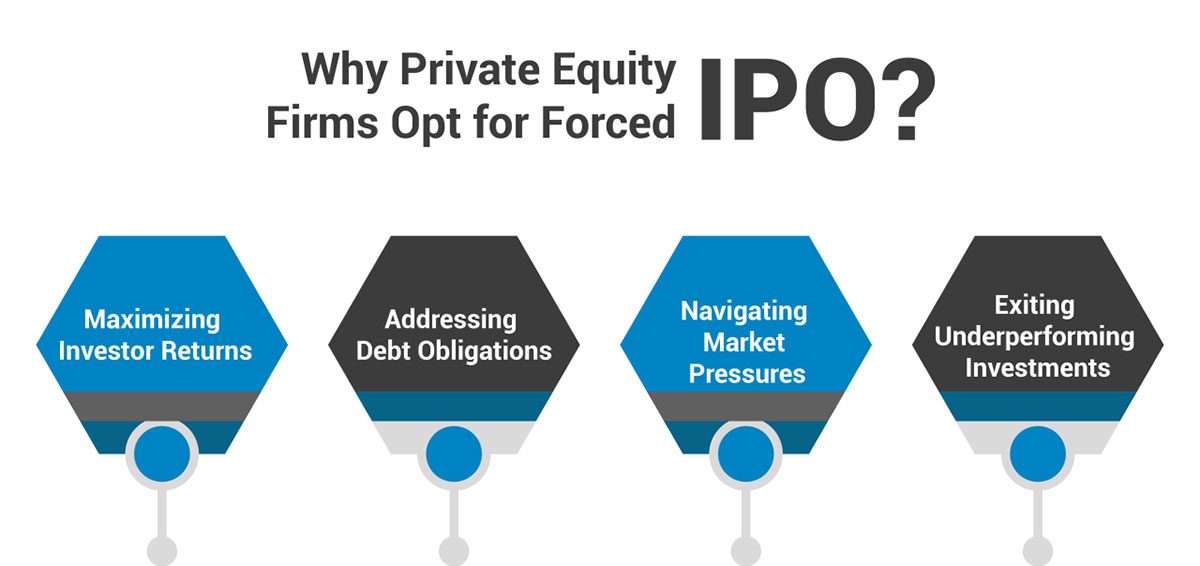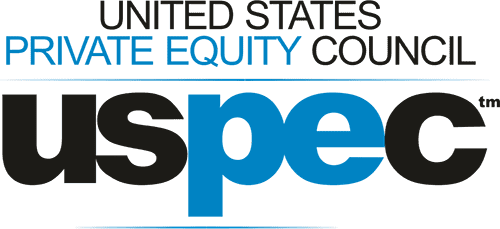Introduction
Private equity has emerged as a powerful player in determining IPO trends, usually leading companies into flotation upon exit strategy. One of the rapidly growing phenomena is known as the ‘forced IPO’ – the cases when the Companies are taken out to the public market by private equity firms that need to get funding quickly or maximize their value. This article focuses on how private equity in IPOs affects such changeovers and their ramifications on companies and shareholders.
Private Equity’s Role in Shaping IPO Markets
Private equity has played a major role in the dynamics of Initial Public Offering (IPO) markets, catalyzing the volume and the type of initial public offerings. As private equity firms increasingly focus on extracting the maximum returns for their investors, IPOs become an exit route of choice.
Keyways private equity shapes IPO markets:
-
Capital infusion: Private equity firms provide capital to a company, enabling it to grow, after which it is deemed more attractive for a public offering.
-
Strategic oversight: These companies often play a hands-on role in management, help streamline operations, and prepare companies for a successful IPO.
-
Exit strategy: The IPO is one of the most cherished exits of private equity investors to take advantage of gains and hand over the ownership to the public shareholders.
However, private equity’s effect on IPO markets brings its volatility — private equity firms tend to encourage IPOs when the market is strong, even if a firm is not ready for public life in the long run.
What is a Forced IPO?
A forced IPO is when a private equity-backed company is faced with an option to go public despite wanting to remain private. A forced IPO is based on something other than financially positive market conditions and a well-prepared company, as is the case with a planned IPO. In particular, private equity firms may be pushing for such an IPO for financial or strategic reasons.
Key reasons for a forced IPO include:
-
Debt obligations: When the time comes for repayment, companies with bearish debt may need to seek capital quickly. What tools could be more appropriate than an IP?
-
Investor exit strategies: Private equity investors normally have a definite time frame for when they want to get out of their investments. They may force an IPO if other exit options, such as selling the company, aren’t viable.
-
Liquidity needs: Even if market conditions are unfavorable, private equity firms may wish to liquidate their positions to return capital to their investors.
IPO markets are forced to become volatile owing to the timing of IPOs when companies might not be ready or market sentiment might be different, thus affecting the long-term performance.
Why Private Equity Firms Opt for Forced IPOs?
A forced IPO can often be a strategic necessity for private equity firms. Most of these firms invest in these companies to increase the company's financial performance exit via an IPO. However, market dynamics, operational hurdles, or changes in investor sentiment might propel these firms to push them toward a forced IPO. Here are several reasons why private equity firms might pursue this route:

-
Maximizing Investor Returns: The fiduciary responsibility of private equity firms to their investors. A forced IPO can be a quick exit strategy because they can get out sooner and regain capital and profits for their stakeholders before those optimal market conditions.
-
Addressing Debt Obligations: Debt owed by companies following leveraged buyouts is typically quite large. If a forced IPO can provide the necessary liquidity to address outstanding obligations and stabilize the firm’s financial situation, it becomes a potential tool for banks.
-
Navigating Market Pressures: Private equity firms may be encouraged to push more quickly toward an IPO in the face of market fluctuations, which might enable a firm to raise capital in a less favorable economic cycle or help it avoid a downturn in the market.
-
Exiting Underperforming Investments: Private equity firms might need to take a portfolio company public if it is not reaching its growth expectations to recover the value invested and cut its losses.
Understanding what these motivations are helps stakeholders understand the significance of forced IPOs in the dynamics of a market and how it can affect a company as a whole.
Risks and Consequences of Forced IPOs
Forced IPOs can introduce significant risks to the involved and the broad IP. When a private equity firm pushes a company to go public under pressure, the following consequences may arise:
-
Market Volatility: Since many IPOs are in a rush, flimsier IPOs can see their stock prices go wild for good as investors react to hastily presented financials and future projections.
-
Short-term Focus: In such cases, companies can focus on short-term gains to the detriment of long-term growth and their business model and strategic goals.
-
Reputational Damage: An unsuccessful IPO can damage a company's reputation, making raising future investors or partners difficult.
-
Regulatory Scrutiny: Regulatory bodies looking after issues of transparency and fair practices may take a closer look at forced IPOs.
As such, these factors can ultimately erode investor confidence and disrupt the fundamentals of IPO markets, generating cascading effects on market stability.
The Impact on the Broader IPO Market
When private equity in IPO transactions necessitates forced IPOs, they can significantly affect the size and general IPO markets and investor behavior. A major issue is the enhanced fluctuation from going public at early stages, mainly because of private equity pressure. In such cases, there may be a change in stock price because of the uncertainty in the market, which will not be so mutually beneficial as in the case of routinized markets.
Key impacts include:
-
Market Volatility: Unsustainable public offerings also avert proper stock price volatility due to inadequate preparation or exaggerated worth.
-
Investor Confidence: A high frequency of forced IPOs can cause some damage to the IPO markets since investors start doubting the quality and sustainability of private equity-backed firms.
-
Regulatory Scrutiny: As private equity firms continue to force deal-making towards faster exit through IPOs, authorities may put more stringent measures in place to preserve market efficiency and investor interest.
Furthermore, pressured IPOs might entail firms not ready to address the requirements of the public float, leading to poor performance. This trend can affect general market health because it can give grounds for further unsuccessful stocks’ performance and potential deterioration of IPO markets.
Conclusion
Private equity involvement in IPO transactions is altering the landscape of the IPO markets. Strategic motivations and market pressures induce forced IPOs that present companies and investors alike opportunities and challenges. As this trend continues, it will become necessary for the stakeholders to deal with the complexities and the potential volatility associated with such offerings. As investors, companies, and regulators look to understand the long-term implications of forced IPOs, it will be critical to ensure a stable and robust IPO market in the future.







